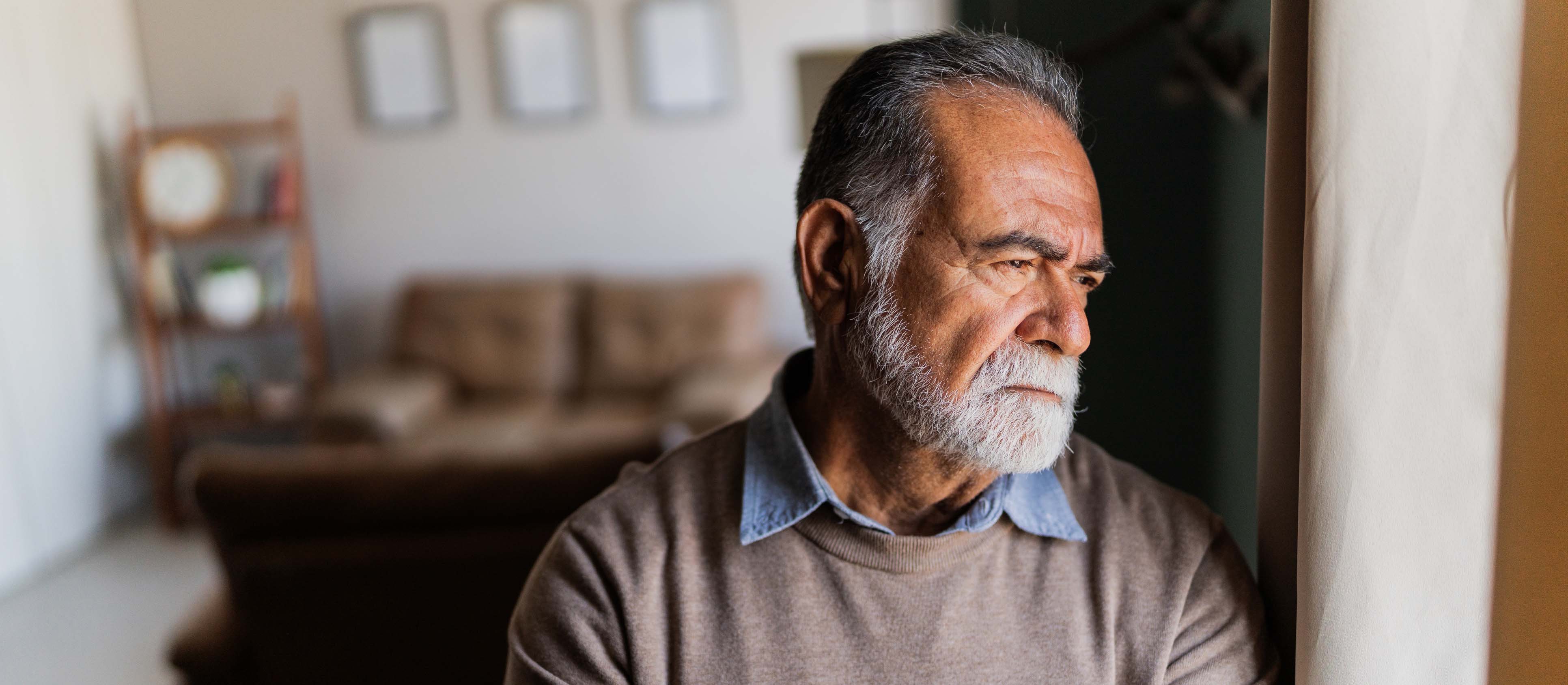Coping with the Loss of a Father

I received a call while at work several years ago. I don’t remember who made the call, but I was stunned by the news. My father had passed away. Dad had been told by his doctors he had only about four weeks to live. But I had never known such predictions to ever turn out to be accurate.
My wife drove much of the way to my parents’ home, about 13 hours away. I knew I’d be asked to officiate at his funeral. So, as I sat in the van, I thought about what I might say. What words would not simply summarize his life, but would honor him for the ways he had poured into my life? I recounted many experiences we had shared—and as I did, I found myself alternating between crying over his absence, chuckling at his jokes, and smiling about the “milestone moments” we had as we shared our lives together.
Grief is shaped by memories
Undoubtedly, you’ve experienced how memories shape grief. When you reflect upon those memories, you rehearse the relationship you shared with your father and his impact on who you’ve become.
- Dhati: “I remember early on my first tackle football game and I scored like four or five touchdowns. And my dad gave me some life shaping words. He said, ‘You have a God-given talent.’ Those words really shaped my life. Everything that I did or didn’t do was because I wanted to be a pro athlete like my dad. He was the person that I wanted to be like.”
- Tom: “I considered my dad to be my closest confidant and somebody who really understood me. My father was my best friend.”
- Chad: “I was raised as a cowboy by a cowboy, and that common interest put us together a lot. He was the kind of father who was a good model for me. He taught me a lot.”
Because grief is shaped by memories, according to counselor Sue Lutz, “There’s no one official way to grieve. There’s no manual, there’s no instruction sheet that is one size that fits all.” There can’t be, because grief is connected to the particular ways a person has touched your life. Wanda adds: “Yes, I learned that your grief journey is your own. There’s no time limit. There’s not a certain way you have to feel or act or whatever.”
Grief comes with multiple emotions
As you recall those memories of your father, you’re likely to experience a variety of emotions associated with them.
- Sadness comes as you reflect on what has been lost. Author Joni Eareckson Tada remembered her sadness in these terms: “He was such a force in my life and I could not fathom that everyone else around me just kept on going. Didn’t they understand what had happened—that the world had stopped shortly after his funeral? It was a very hard season.”
- Fear or anxiety comes with increased feelings of uncertainty and vulnerability. Zori shares: “When my father died, I realized how fragile life is and that I wanted to take advantage of every moment I had with my loved ones. At times it made me afraid that they might leave at any moment.”
- Anger might come if you had a difficult relationship with your father, or have been disappointed by how others have responded to his passing, or don’t understand God’s apparent inactivity in all this. With anger comes an objection: “This isn’t how it’s supposed to be!” That certainly captures Tom’s anger after his father’s death: “We had my dad in and out of the emergency room over and over again trying to figure out what was wrong. I was mad at every doctor for not finding the blockages. I felt like they were professionals and they should have been able to figure it out.”
- Regrets over missed or mishandled opportunities will add guilt or shame to the sadness over the loss of your dad. This often revolves around not expressing love frequently or letting conflicts fester.
The emotions of grief can hit intensely at first and then become less intense as new routines in life become more established. Or they might not be noticeable initially and later hit once the reality of the loss sinks in. In addition, “ambushes” of grief-related emotions might be triggered at any time in the future—a sound, a smell, an object, or an experience can spark a memory and its associated emotions.
Coping with the loss of a father
Sue Lutz drills down to the core of what it means to “cope” with the death of a loved one: “You’re on this journey you never wanted to be on. And you just want it to be over. And it will be over, but you can’t skip it. You can’t work around it. The only way around is through it.” In other words, this means being willing to experience the emotions, trying to figure out how to make changes in your life because of your father’s absence, and realizing the emotions that are so hard now won’t be as intense in the months and years to come.
Honoring your father’s memory
 Another part of coping with a beloved father’s death is honoring his memory. This could be done in any number of ways: offering a eulogy at a memorial service, setting up a memorial fund for a charity important to him, making a donation to a nonprofit organization that your dad was involved in, creating a mountable display of objects that were special to him, etc.
Another part of coping with a beloved father’s death is honoring his memory. This could be done in any number of ways: offering a eulogy at a memorial service, setting up a memorial fund for a charity important to him, making a donation to a nonprofit organization that your dad was involved in, creating a mountable display of objects that were special to him, etc.
Memorializing crystallizes how your father blessed you and others. Brian experienced this at his father’s funeral: “At the funeral home there were so many people who I didn’t know, but who were making an effort to come and share with us the impact he had on their lives. Sharing that with the kids and with my wife was important, making sure that they realize that he wasn’t just their grandfather or father-in-law. He was a man who had an impact.”
Memorializing also nurtures gratitude, which can help you see possibilities for the future. Like his father, Allyn became a pastor, and he drew great encouragement from his father’s example. “It’s difficult to watch your hero decline, but it is a part of this life. My father prepared me for this, and it’s my turn to give back to him what he gave to me. He was a wise man and I try in principle to pattern my ministry after his.”
Learning lessons from grief
Beyond the lessons your father taught you over the years, there are also lessons grief can teach you. Having gone through the loss of her dad, Sue Lutz realized, “It really helps to come to terms with your own limitations. Your world gets pretty small if you’re gonna try to just live in a world where you can control and understand everything. And you realize, there is no such place as that. Those are painful lessons, but they’re useful ones.”
Losing your father is a life-altering experience. You could benefit from a group, like GriefShare, where you will learn more about coping with your loss. A GriefShare group will also show you how deepening a relationship with God can help you cope with the loss of your father. We encourage you to find a GriefShare group meeting near you or online.


